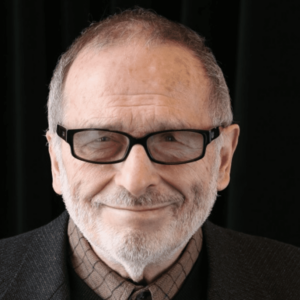According to an Abacus Data poll taken April 28–May 3, 2023, “2 in 3 Canadians would vote to eliminate the monarchy in Canada.”
This tracks nicely with an Angus Reid poll taken a year before on April 5-7, 2022. It suggested that 67% of Canadians would oppose “Prince Charles as King and Canada’s official head of state.”
Canadians are nonetheless still in the early stages of talking about just what it would mean to leave the monarchy that resides in the United Kingdom.
And now that King Charles III has been properly crowned, we at least ought to start talking about alternatives to the monarchy that make sense for Canadian institutions.
To take one glaring case in point, some recent polls ask about “cutting ties with the monarchy and having the prime minister become both the head of the government and the head of state, replacing the Governor General who is the representative of the Canadian monarch.”
Yet in the Preamble to what we now call the Constitution Act, 1867 Canada has “a Constitution similar in Principle to that of the United Kingdom.” And one distinguishing feature of this kind of “Westminster” constitution is a ceremonial head of state above the ordinary partisan political struggle, separate from the head of government.
Having the prime minister become both the head of government and the head of state is to effectively try to Americanize Canada’s Westminster constitution, in a way that raises too many questions about just how government would work under the new order.
The only fellow former self-governing British dominion to try to leave the monarchy in this way is South Africa. And it seems fair to suggest that the consensus is this has not worked well.
More durable transitions to Westminster parliamentary democratic republics have taken place in Ireland and India.
The strategy here has been not to replace the Governor General, but to turn the office into an independent ceremonial head of state, that plays effectively the same role “above politics” as the monarch in Canada’s “Constitution similar in Principle to that of the United Kingdom.”
Ireland and India offer two different options for selecting the new democratized governor general or ceremonial head of state — paralleled, for example, by Iceland and Germany as similar parliamentary democracies formally outside the Westminster tradition. And these options have worked well since 1938 (Ireland), 1944 (Iceland), 1949 (Germany), and 1950 (India).
In Ireland the democratized ceremonial head of state is directly elected by the people of Ireland for a seven-year term.
Any Irish citizen over the age of 35 can seek nomination as a candidate. But a candidate must be nominated by at least 20 members of the Irish parliament or no less than four county councils. And this takes any extreme populist edge off the popular election principle.
In India the democratized ceremonial head of state is indirectly elected for a five-year term by an electoral college composed of the elected members of the federal parliament and the elected members of the state (and territorial) legislative assemblies.
Iceland is a parliamentary democracy outside the Westminster tradition, with a ceremonial head of state selected by direct election as in Ireland. Germany is a similar parliamentary democracy with a ceremonial head of state selected indirectly by federal and state legislatures, as in India.
In all of Ireland, Iceland, Germany, and India the new democratized ceremonial head of state is called a president.
There are reasons, however, for wondering whether this would ultimately make sense in Canada. And most of them involve the prospect of confusion with the quite different kind of president in the United States next door, who is both head of government and head of state.
Similarly, one attraction of leaving the monarchy by following the Westminster parliamentary democratic rather than the Washington presidential model, is that very little in Canada’s current federal and provincial governments has to change.
The Governor General (as even a democratized version of the ceremonial office might continue to be called) just takes over the role of the monarch. (Or more exactly the reformed Governor General would be Canada’s head of state in theory, as well as the head of state in practice the Governor General already is now.)
If we’re going to keep talking about leaving the monarchy (and no doubt we are : look at the polls), we ought to be talking about alternatives that follow Canada’s traditions of parliamentary democracy since the middle of the 19th century.
Trying to “Americanize” our current Westminster-style democracy that has served us well for more than 150 years is not a realistic option for the Canadian future.






